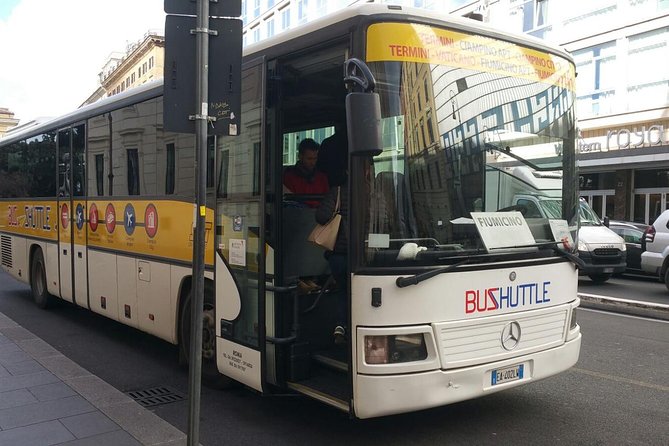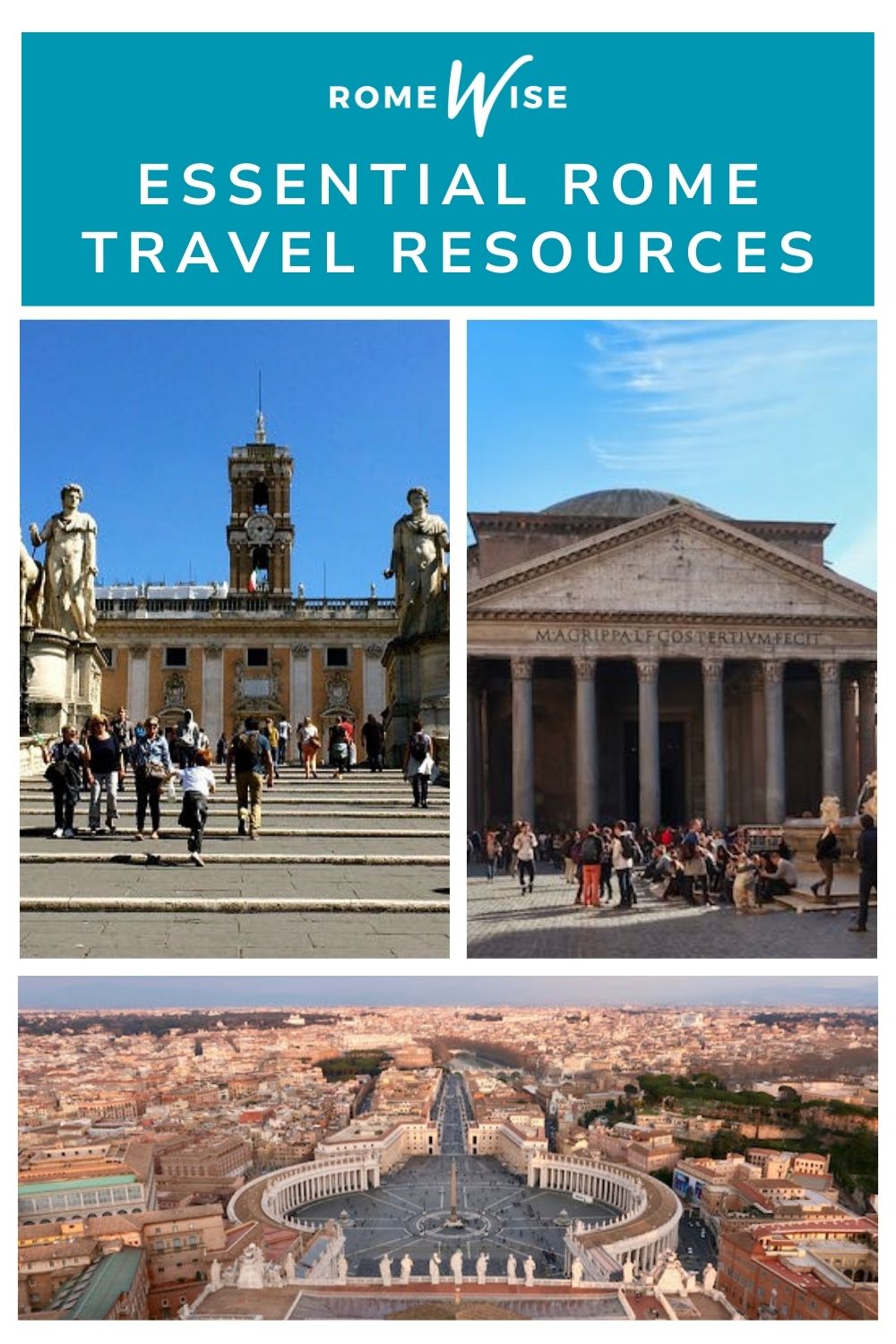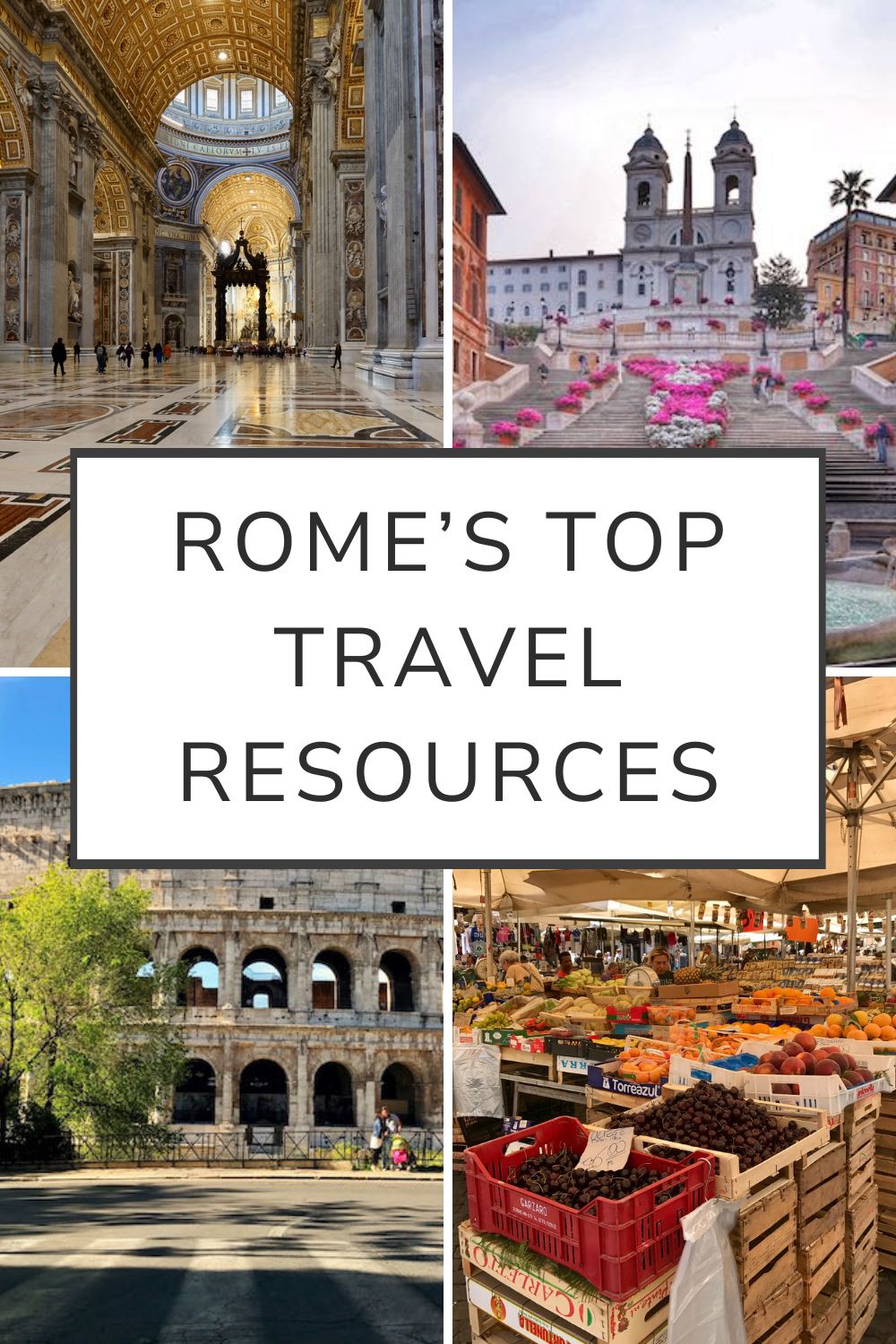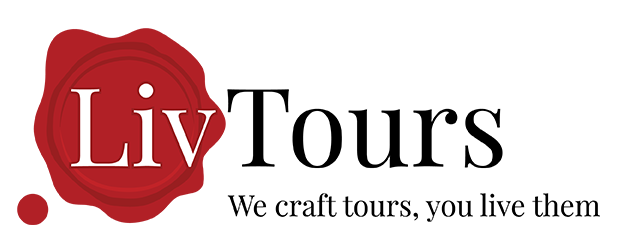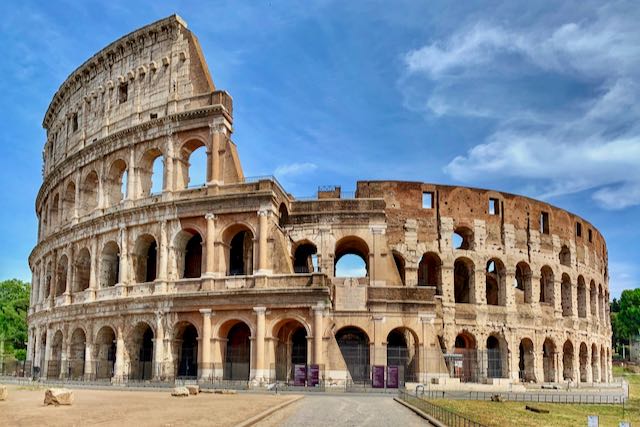- Sign up & get a FREE ebook Subscribe NOW!
- Romewise Home Page
- practical resources
All the Top Travel Resources You Need for a Great Trip to Rome
Getting ready to book your trip to Rome?
Make sure to take a look at all our top travel resources and suggestions for an amazing trip!
Planning your Rome Visit
When starting to plan your Italy travels, whether they're focused on Rome or wider exploration of this amazing country, there's a lot to think about.
The last thing you want is to find your hotel is far away from all the main sights, you've packed the wrong footwear or end up booking a sub-par tour (all of which I've done over the years!)
Take advantage of our favorite travel resources for booking an incredible trip, including:
- Choosing your accommodation
- Booking your flights
- Getting around in Rome and Italy
- What to pack for Rome
- Arranging tours and activities
- Protecting yourself with travel insurance
- Managing your travel spending
Choosing the right accommodation for you
The first step is deciding where in Rome you want to stay.
Do you want to be in the heart of things or in a quieter neighborhood?
Prefer to walk everywhere or happy to use public transport or taxis?
Once you've used our definitive guide to where to stay, the next step is searching for accommodation in your chosen area.
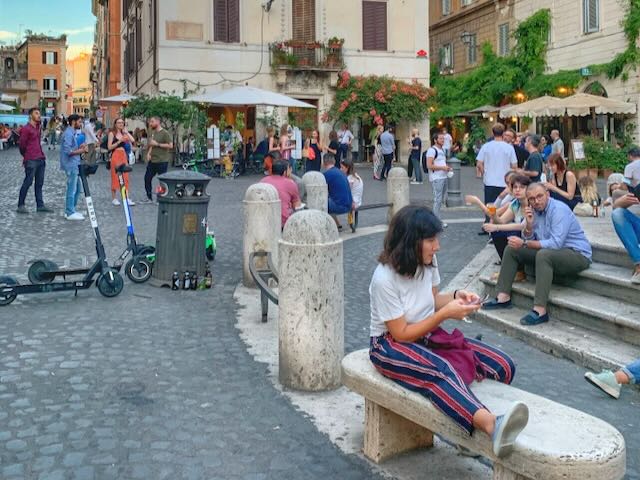 The Monti neighborhood is steps away from the Colosseum but is not the quietest area, so thinking about what's important to you is crucial when it comes to accommodation
The Monti neighborhood is steps away from the Colosseum but is not the quietest area, so thinking about what's important to you is crucial when it comes to accommodationYou can use the in-depth search tools available here to filter by facilities, type of property, reviews and much more to find the accommodation that's right for you.
Or use this handy map to look for apartments, B&B's and hotels in Rome:
Booking your flights
We use Skyscanner to book flights, which gives you lots of potential flight options which can be filtered by timings, prices and more.
Search with specific dates or use their helpful tool which shows you when the cheapest options are available for your chosen route.
Getting around Rome and Italy
I would recommend organizing your airport transfers ahead of time for a smooth journey to and from your accommodation
You can take a regular taxi into the city, but the lines can be long and if you're in a large group you will need to take multiple cars.
Using the public transportation in Rome is straightforward, whether you use the buses, metro or trams.
You can also use regular white taxis or apps such as FreeNow or ItTaxi.
If you have time in your itinerary, take advantage of Italy's excellent railways to travel further afield with Trainline.
This app gives you access to timetables and live departure times, you can book online well in advance or last minute and all the tickets are stored digitally on your phone, making day trips to places like Pompeii and Florence simple.
Trainline has routes served by both Italo and Trenitalia, the two train companies in Italy, so you can compare timetables and pricing.
Trainline also covers multiple European countries and the UK, so is a very useful app if you're a regular Europe traveler.
What to pack for Rome any time of year
Check out all our essential packing recommendations here, complete with a downloadable packing list to make sure you don't forget anything!
Looking to replenish your travel wardrobe ahead of your trip?
Check out the Romewise Amazon store for some of our top recommendations.
No matter what season you visit Rome, here are 4 essential things we recommend never leaving home without:
Disclosure: If you make a purchase through a link on this page, I may receive a small commission - at no extra cost to you. Thank you for supporting my site!
The number one travel accessory I always pack?
A universal travel adapter that is suitable for use in countries all over the world, with multiple USB ports and a built-in voltage converter.
Arranging your tours and activities
There's so much in Rome to explore that it can sometimes be overwhelming to do it by yourself.
My view has always been that taking a tour with a top-quality provider is a great way to make the most of your trip.
I recommend booking your Rome tours with one of our approved partners, all of which have expert guides, great booking options and availability:
Liv Tours
Liv Tours are a family owned business born out of love for Rome and Italy, who offer small group tours that are designed to give you a special experience.
With tours run by local expert guides that offer something a little different to the average Rome tour, Liv Tours provide exclusive access to sites and follow sustainable and responsible tourism practices.
Specializing in experiences with a difference, Liv Tours are our preferred company when it comes to private tours.
Golf Cart Tours
Golf cart tours are fast becoming the most requested tour type in Rome, providing an eco-friendly way to explore the city without being too tiring.
Liv Tours are our preferred provider as they have a wide range of golf tour options in Rome, with private and semi private tours available.
Walks of Italy
A long-time Romewise partner, Walks of Italy specialize in offering unusual and exclusive tours that allow you access to places that would otherwise be difficult to get into.
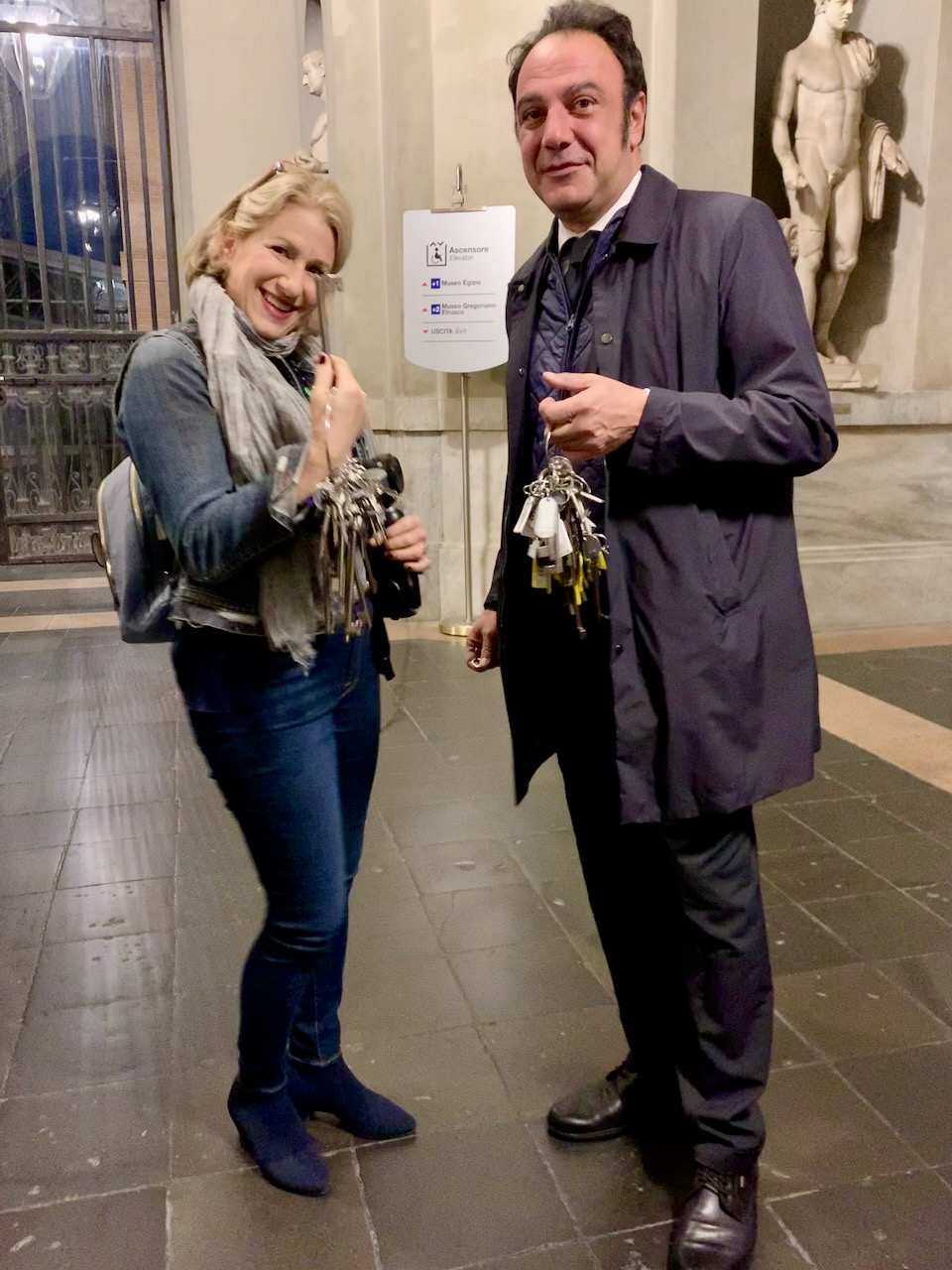 Being able to open up the Vatican Museums on Take Walks' special Key Master tour was something I won't ever forget
Being able to open up the Vatican Museums on Take Walks' special Key Master tour was something I won't ever forgetOther tours and experiences
GetYourGuide, Tiqets and Viator all offer a huge range of tours and experiences, ranging from simple entry tickets to in-depth tours.
Bringing together tours from multiple providers, these sites allow you to compare different options, track all bookings in one place and keep all tickets together in one account.
You can also book your Rome city passes in advance - find out which one is right for you here.
Getting the right travel insurance
One thing you should absolutely not forget to arrange for a trip to Rome (or anywhere really) is travel insurance!
Having peace of mind just in case something happens is priceless.
Managing your travel spending
One of the most common things I get asked about is money.
How much cash to bring, what cards are accepted in Italy, foreign transaction fees and much more are all popular topics of discussion.
I've found that the simplest way to avoid any problems when you're in Rome is to set up a Wise account with a debit card before you travel.
This card allows you to hold multiple currencies in one account, charges minimal ATM fees for withdrawing cash and can be used in countries all over the world without incurring large fees or currency exchange fees.
Within this post and across the Romewise site there are some affiliate links for products and services.
For more details about our affiliate policy click here.
Romewise's Top Travel Resources
Ready to book your trip to Rome? Take a look at these helpful links to companies we use and trust:
- Keep your travel spending simple with the Wise card, which removes all the worry about exchange rates and high transaction fees all over the world
- Search for and book your perfect accommodation
- Our complete guide to what to pack for Rome
- The number one travel accessory, a multi-point travel adapter and voltage converter
- Browse a huge range of tours in Rome and beyond
- Experience unique tours and special access to Rome's most popular sights
- Protect yourself with comprehensive travel insurance
Within this post there are some affiliate links for products and services. For more details about our affiliate policy click here.
Get your 100% free Rome trip planner now!
Simply sign-up today for our free newsletter and get the Romewise Quick Start guide to Rome:
We are committed to respecting your data. Click for our Privacy Policy.
Comments? Questions? Suggestions?
Please come over to the private Romewise Facebook group and join in the conversation.
You will often find me there, happy to answer your questions / comments!
You will also meet other Rome lovers and experts, too.
What are you waiting for?
- Romewise Home Page
- practical resources


